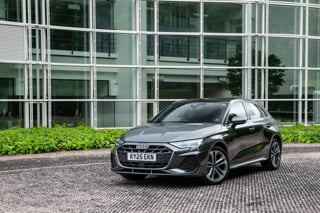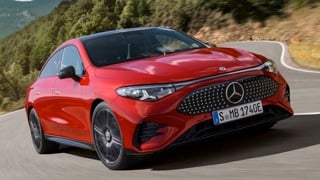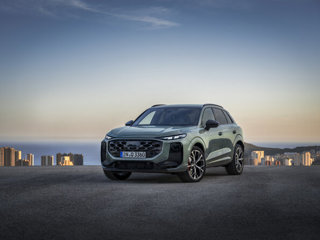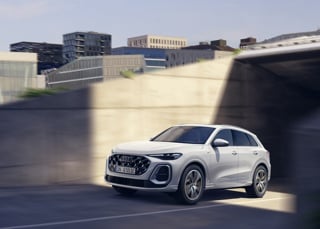Audi has “pressed the reset button” and is going “back to basics” as it looks to grow its true fleet registrations, according to recently appointed head of direct sales Warren Richards.
Acknowledging the opinions of fleet panellists and viewers on the February edition of Fleet News at 10 that relationships with manufacturers had deteriorated over the past few months, Richards said: “The most important thing for us is to look after our customers and give them as much information as possible to make the right decisions.”
He added: “We have tried to keep the conversation and dialogue going at all times. We are going back to basics and re-engaging with customers and leasing partners, giving them full transparency.”
The supply delays which have affected all manufacturers since the first Covid lockdown in 2020 are now easing for Audi, which is reporting six-to-nine-month order times for most models.
“We are seeing good supply come through as we get back to more normalised timescales,” Richards said. “Six months is about right for us.
“But we have to move that perception that cars aren’t available; we have demonstrated that production is there.”
Richards was appointed head of direct sales at Audi in January, part of Volkswagen Group-wide restructuring as fleet director roles were rolled into new direct sales positions absorbing both fleet and retail. Audi is now in the process of rolling out its agency-style processes to the retail market, having first introduced them to fleet back in 2018.
Playing down any impact on the fleet sector on the new direct sales roles, Richards said: “We have a well-established team of Audi fleet managers meeting leasing companies and fleet customers. We can take that knowledge from fleet and embed it with retail buyers, but our customers shouldn’t notice any difference.”
Audi is set for a product onslaught over the next two-to-three years with around 20 new vehicles due for launch, half of which will be full electric.
“It’s the fastest introduction of new cars that we have ever had,” said Richards.
In addition to a new Q6 e-tron and Q8 due later this year, the next generation A6 e-tron has been confirmed for 2024 as both saloon and Avant estate. Audi is also planning a smaller A3-sized full electric car which Richards said would be “key” for user-chooser fleets, a segment he believes is as popular as ever.
“By 2027, we will have an electric vehicle in every market segment,” he added.
From 2026, Audi has committed to launching only full electric cars, although in the interim it sees a role for plug-in hybrid.
“PHEVs are still really popular and remains a stepping-stone, although we also see a lot more people going straight to BEV; they are more confident and that will only continue to improve,” Richards said.
Year-to-April, 36.4% of Audi’s true fleet registrations are full electric and 21.7% are plug-in hybrid. It continues to jostle with Volkswagen for top spot in the true fleet segment (measured by Fleet News as leasing/contract hire and fleet other in the data from Society of Motor Manufacturers and Traders), although Audi’s internal measurement puts it top, according to Richards.
“We want to remain number one in true fleet, and we see our BEV/PHEV mix being very strong,” he said.
Audi has 1,200 fleet customers and takes a twin approach to boosting registrations, said Richards.
"Make sure we connect with our customers, and reconnect where necessary, to understand their needs and increase our share with them; and working closely with our local business development managers on fleets of five-plus vehicles as well as the bigger customers.”
The customer approach has become increasingly consultative to support fleet managers and procurement managers as they transition to electric.
“The vehicle sale comes as a result of that relationship,” Richards adds.
He recognises the challenge coming from new market entrants, in particular the Chinese brands launching in the UK over the next 12-18 months, but believes Audi has the products to fend off their advances.
“They have good quality and good specification – we give them due respect like we do with all customers, Richards said. “We keep a close eye on what they are doing and how, but we are in a great position to respond with the product we have coming through.”























Login to comment
Comments
No comments have been made yet.